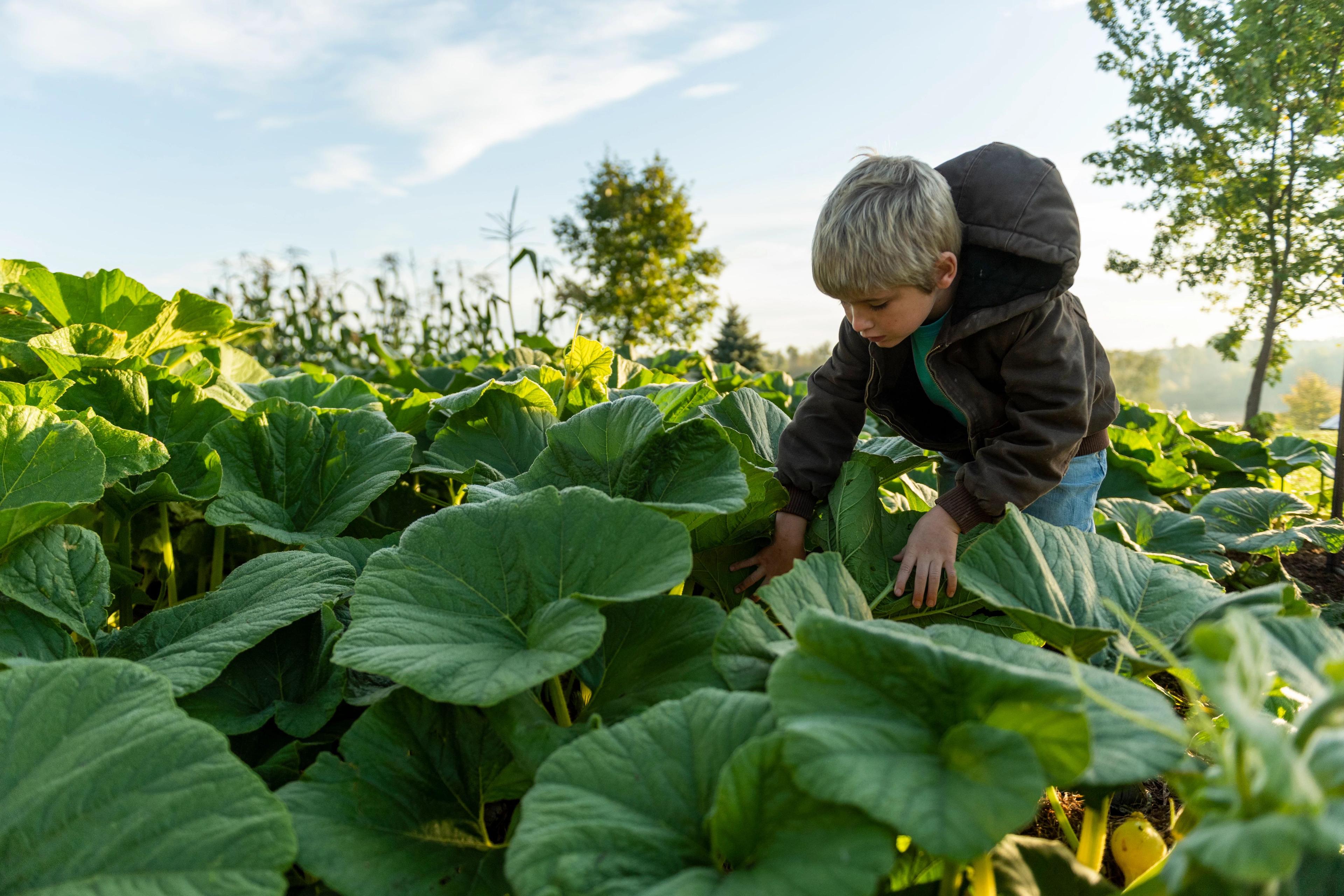
Organic
5 Fascinating Things About Organic
On the fifth day of the fifth month Organic Valley had five things on its minds. Visit Rootstock for five days to be even more fascinated!

Levi Johson checks produce on his family’s farm in Wisconsin.
At Organic Valley, our definition of organic extends beyond the green, brown, and white U.S. Department of Agriculture Organic seal. We approach organic as a philosophy and system of production that mirrors the natural laws of living organisms with an emphasis on the interdependence of all life. Read on to learn five fascinating things about organic.
1. The seal (shown at the top of this article) certifies that no GMOs, no toxic pesticides, no growth hormones, and no antibiotics were used to make a product. Any product that comes from agriculture can be organic if it meets federal criteria including dairy, produce, poultry and eggs, clothes from natural products, cosmetics, tea, plants, fish, and more.
2. The first proposed rules to establish national organic standards were published only 25 years ago! It caused quite a stir. The Department of Agriculture was swamped with more than 275,000 public comments following the proposal being published in December 1997, according to the Organic Trade Association.

The Yokiel family farm in Minnesota.
3. Becoming certified organic takes dedication. Here’s an abbreviated version of how it works. A producer/farmer adopts organic practices, submits an application, and pays a fee to an accredited certifying agent, like Oregon Tilth or NICS. The agent reviews the application to ensure it complies with USDA regulations. An inspector conducts an on-site farm inspection. Once the agent has all the information, they review the application and inspector’s report to make sure everything complies. If everything is approved, the applicant may be certified organic. There is an annual recertification process.
4. There are 700-plus chemicals that, by law, cannot be used in growing or processing organic products, and regulations cover everything from farm to table. For example, farm equipment is cleaned before use if it was used previously on non-organic land. Organic farms must ensure “drift,” chemical spray from neighboring land does not touch their organic plants. Before harvesting an organic crop, the land has to go for at least three years without the application of prohibited substances.
5. Organic farming typically requires more labor than conventional farming. Since organic farmers are required to farm without the use of synthetic herbicides, farmers may need to cut weeds by hand, or incorporate more crop rotations or enhanced habitat restoration. Organic Valley farmers are OK with the extra work. The co-op’s founding members were pioneers in the organic movement and instrumental in setting organic standards! Organic Valley continues to be involved in regulatory aspects.
Farming organically may not be the easiest way, but it’s the right way. Organic Valley farmers believe in doing what's right for people, animals, and earth and are committed to bringing ethically made organic food to families everywhere.
Related Articles
Tags:
- pesticides & herbicides,
- food & farming policy,
- food labeling















